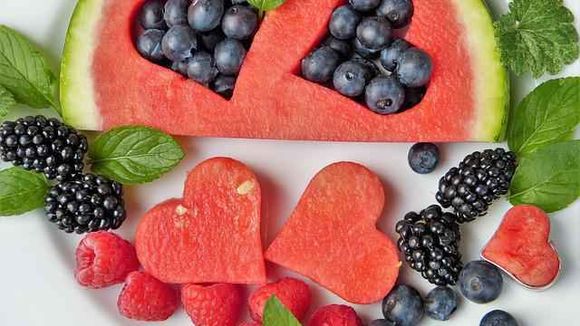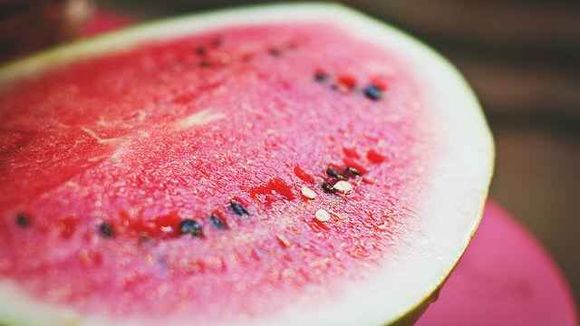Interesting facts about the watermelon
Watermelon (Citrullus lanatus) is a deliciously healthy fruit rich in nutrients, low in calories and fat-free. [ [ref. 1] ] When eaten in reasonable quantities, watermelon is useful to you and provides many health benefits. You can eat all parts of the watermelon, including the bark and seeds that we are accustomed to throwing away.
Did you know, for example, that watermelon is approximately 92% water, similar to cucumber? Each juicy bite of this fruit has an enviable amount of vitamin A, vitamin B6 and vitamin C, many lycopene, antioxidants and amino acids. Watermelon even contains a modest amount of potassium [ [ref. 2] , which promotes electrolyte balance in the body and is important for regulating the activity of muscles and nerves. [ [ref. 3] ]
Watermelon is an excellent source of antioxidants. These substances can help counteract free radicals, improving the protection of the body from damage. The body actually produces free radicals during natural processes, such as metabolism. They can also be formed due to smoking, air pollution, stress and other environmental factors. At some point, they begin to do their harm, and they are our soldiers who can protect us. Watermelon can get them for you. It is also interesting that watermelon contains some of the highest levels of lycopene of all kinds of fresh fruit. Lycopene is a phytonutrient that is a naturally occurring compound in fruits and vegetables. [ ref. 4] Also red pigment gives the color of watermelons, tomatoes and red grapefruit.
Watermelon and its health benefits
Prevention of asthma
Some experts believe that free radicals contribute to the development of asthma. The presence of certain antioxidants in the lungs, including vitamin C, can reduce the risk of asthma, according to them. [ [ref. 5] And a glass with pieces of watermelon (about 150 g) provides 12.5 milligrams of vitamin C. This is between 14% and 16% of a person's daily needs for vitamin C. Thus, you also support the health of the skin, which needs continuous production of collagen, and vitamin C is involved in this process.

Blood pressure control
In a 2012 study, researchers found that watermelon extract reduces blood pressure in and around the ankles of middle-aged people with obesity and early hypertension. The authors suggest that L-citrulline and L-arginine - two of the powerful antioxidants in watermelon - may improve the function of the arteries. [ [ref. 6] ]
Lycopene – another antioxidant in watermelon – can help prevent heart disease by reducing inflammation associated with high density lipoproteins (HDL).
Anti-cancer properties
The National Cancer Institute (NCI) notes that free radicals can contribute to the development of certain cancers. The oxidative stress they cause can lead to damage to DNA cells.
Dietary antioxidants in watermelon, such as vitamin C, can help prevent cancer by fighting free radicals. [ [ref. 7] ] Some studies also linked lycopene intake to a lower risk of prostate cancer. [ [ref. 8] ] Lycopene works by capturing free radicals and preventing oxidative damage to DNA. Thus, it prevents the potential transformation of normal cells into cancer cells. It also modulates gene functions, enzymes metabolizing the carcinogen, apoptosis and immune function. [ [ref. 9] ]
Brain and nervous system
Choline is another antioxidant that occurs in watermelon and contributes to the following functions and activities in the body:
- Muscle movement
- Learning and memory
- Maintaining the structure of cell membranes
- Transmission of nerve impulses
- Early brain development
Through a few pieces of watermelon you can also get this valuable antioxidant. Some researchers have even suggested that choline can protect cardiovascular health by reducing blood pressure, changing lipid profiles and reducing plasma homocysteine levels. [ [ref. 10] ]









